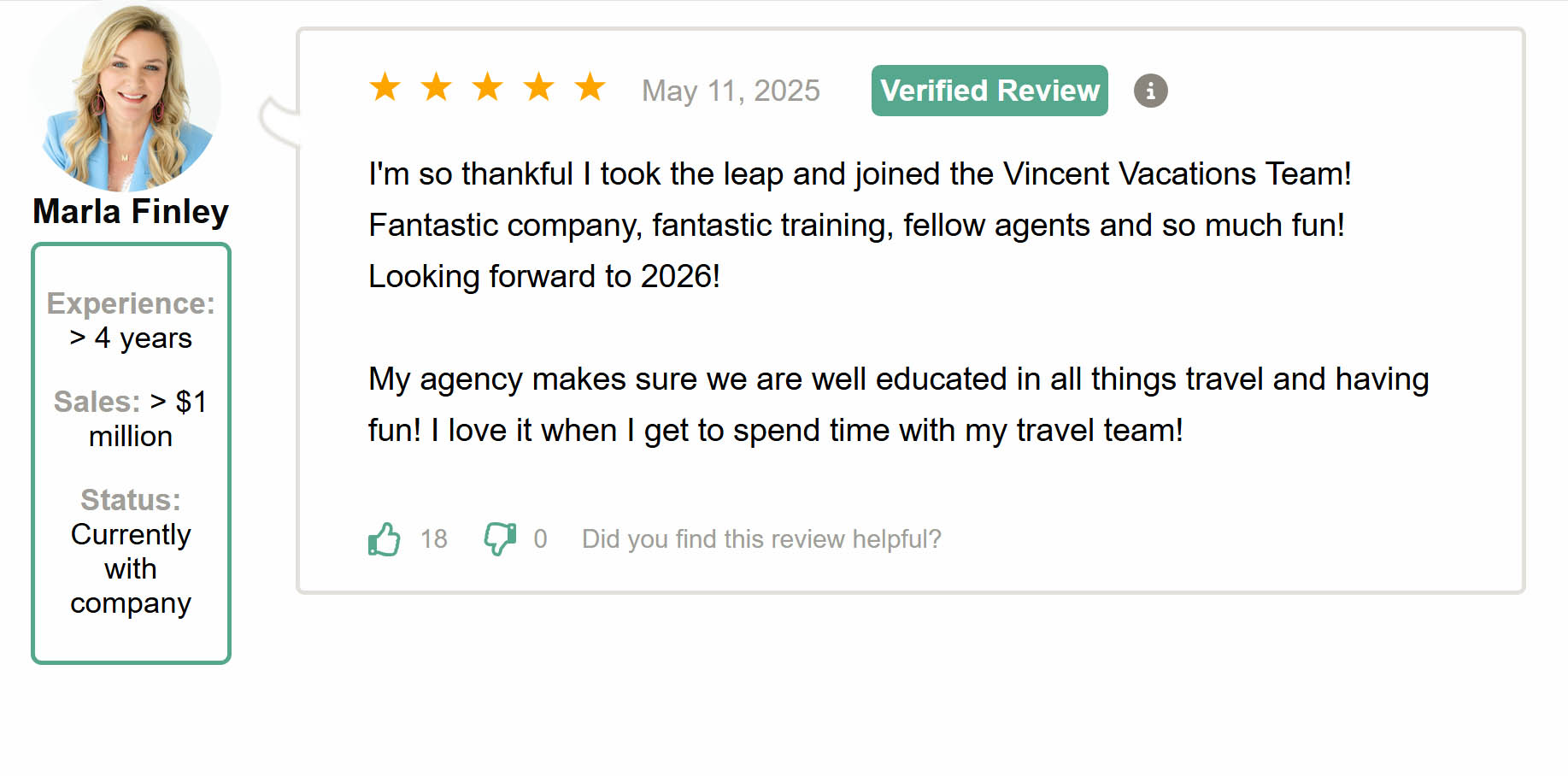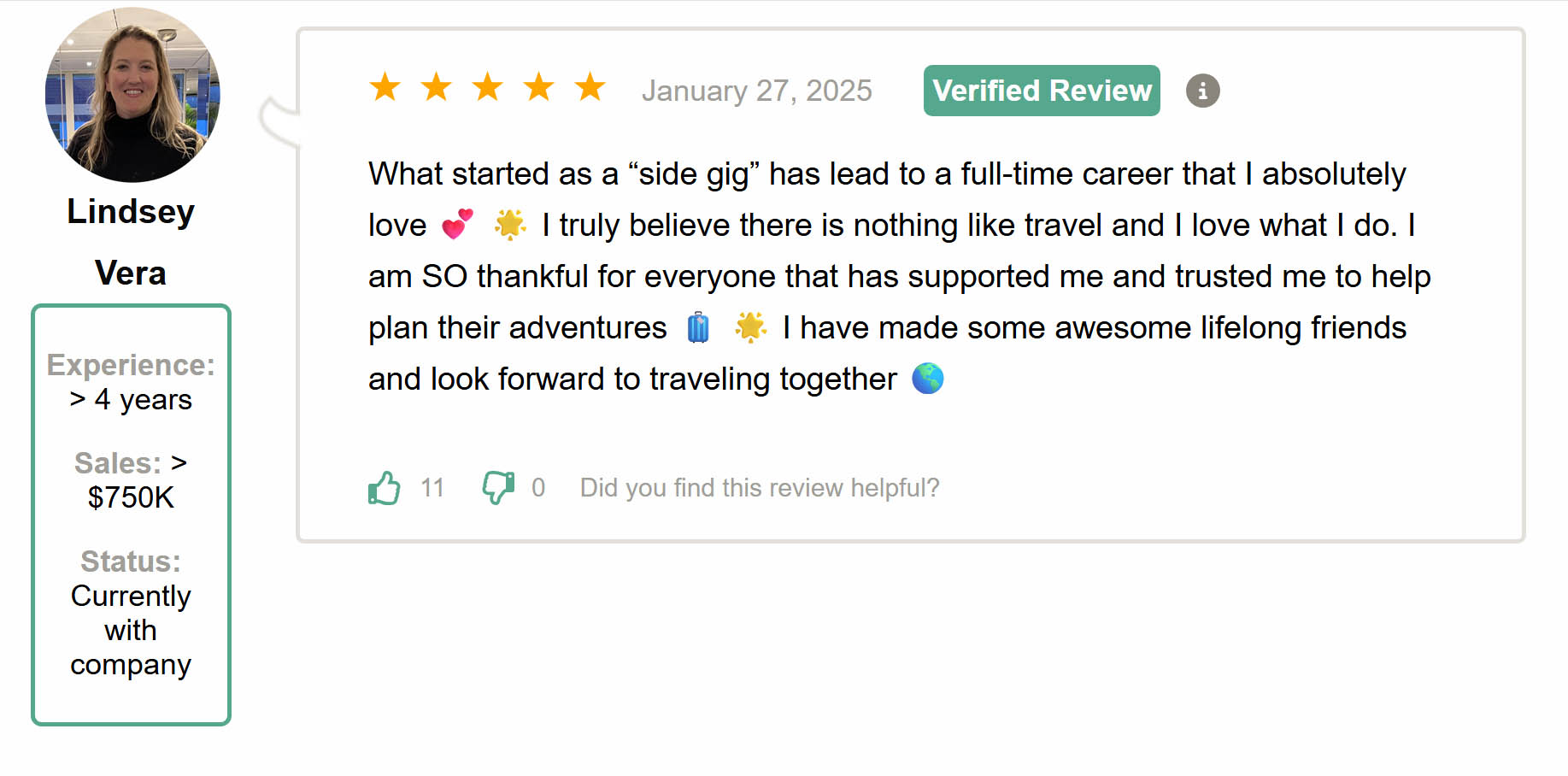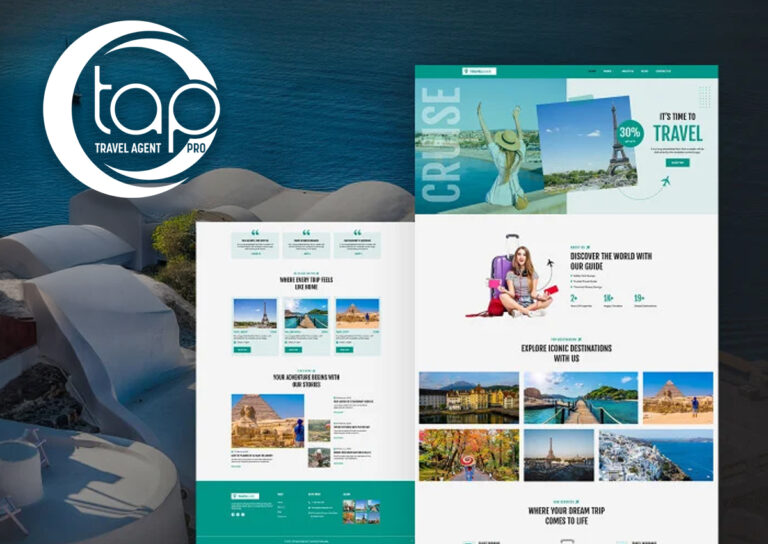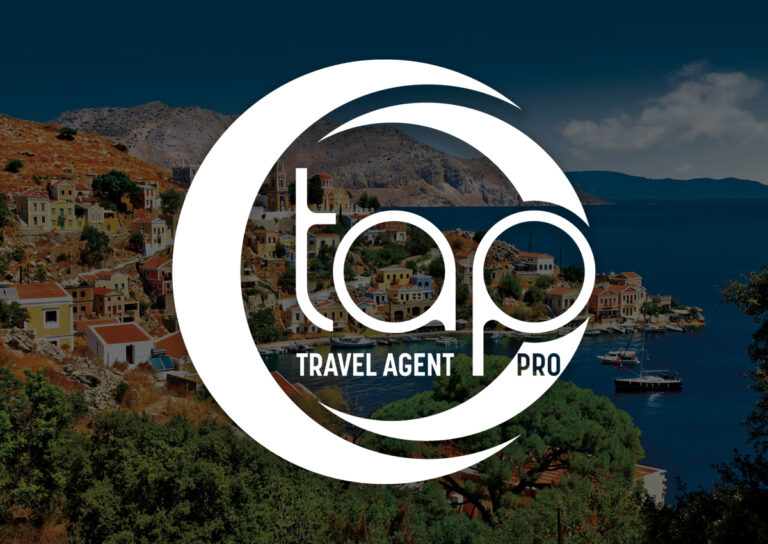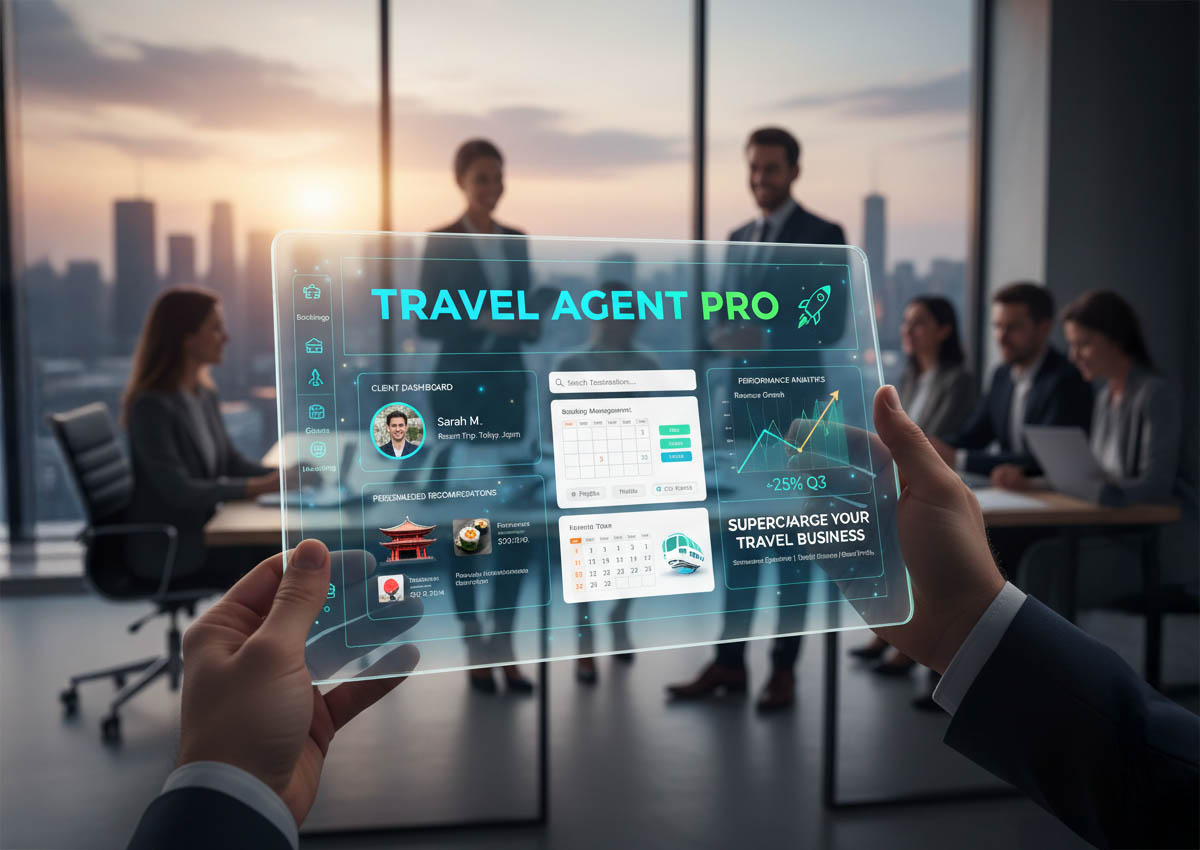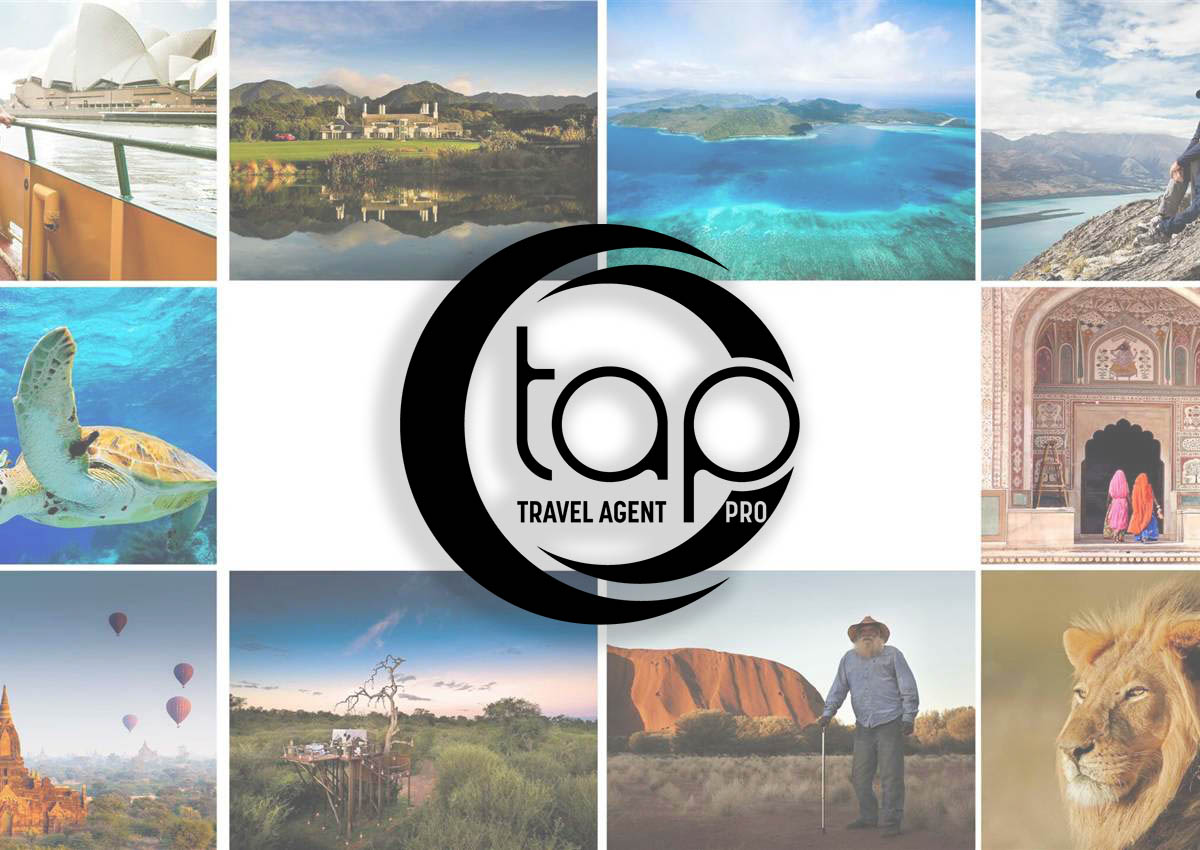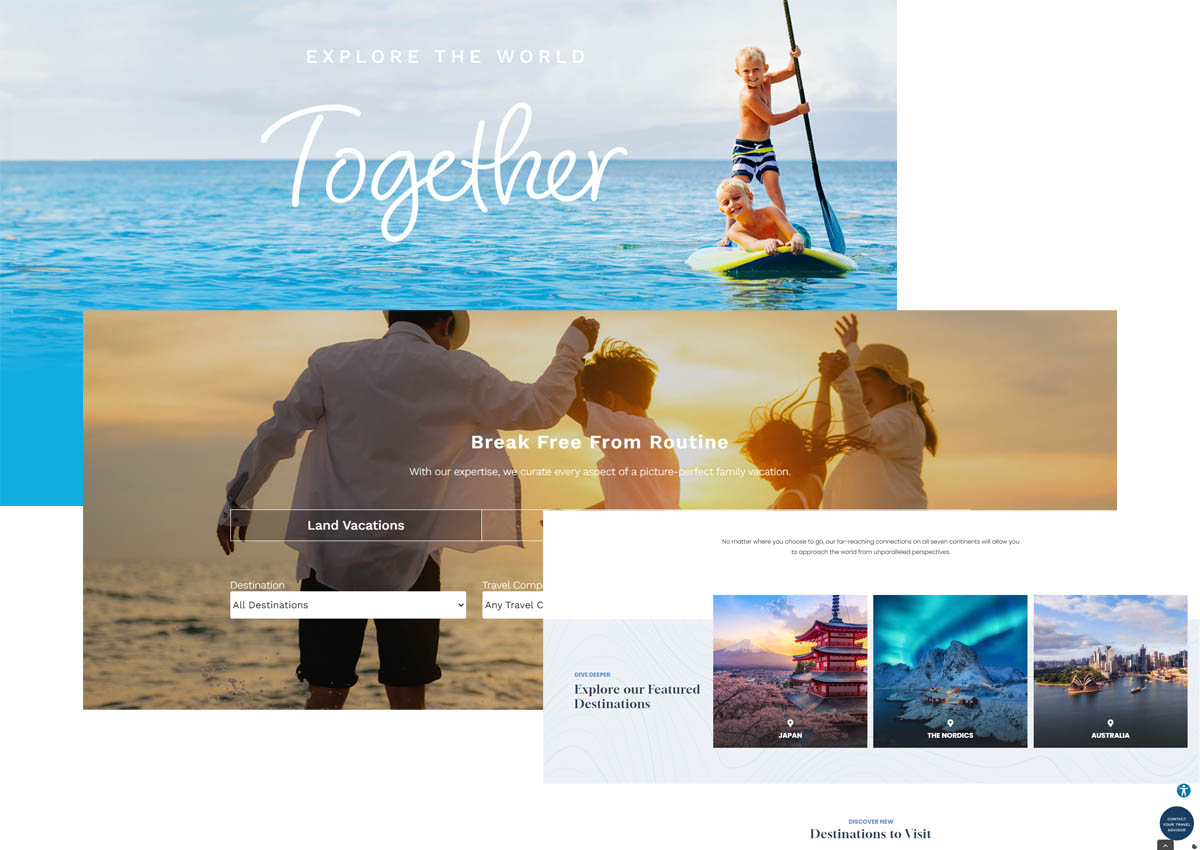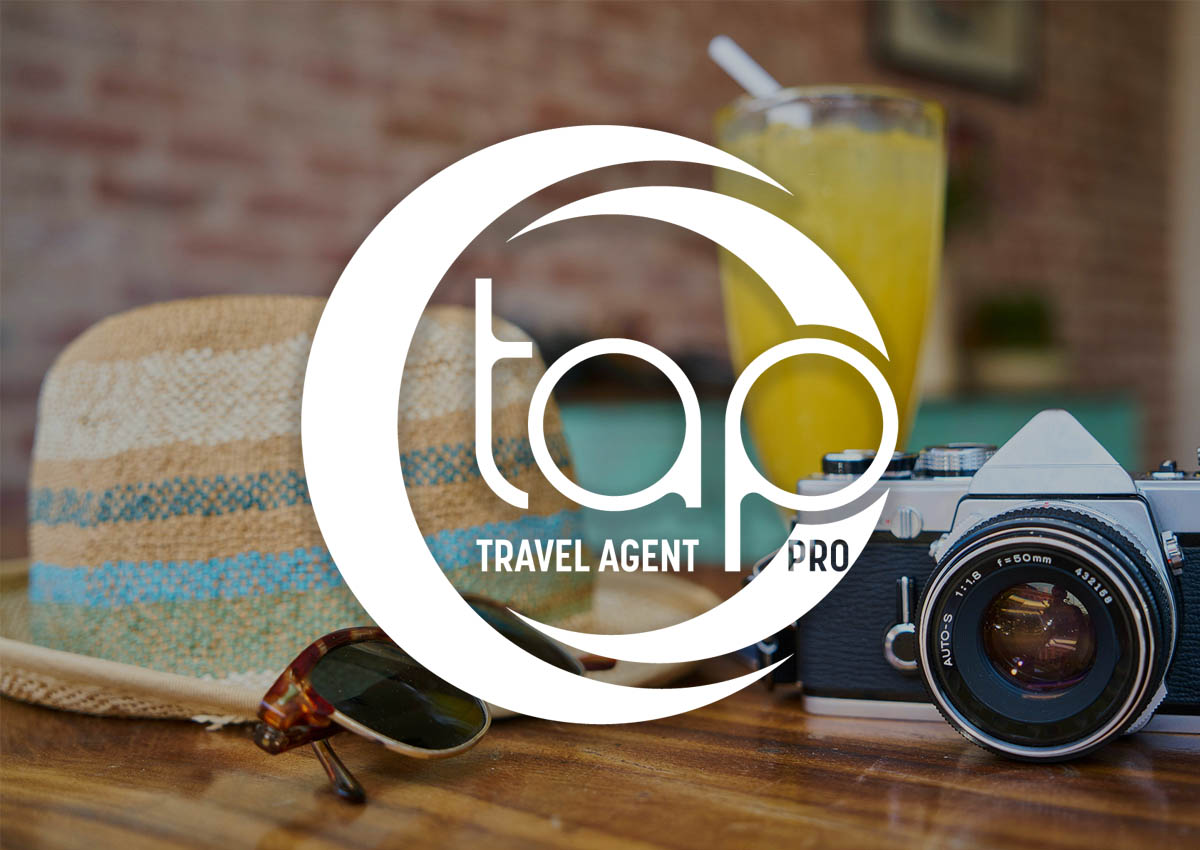Category :
GeneralMust-Have Skills for Travel Agents in 2025
To learn more techniques and how to create and grow your own travel business, sign-up to become a member today!

As the travel industry continues to evolve, the skills required for travel agents to excel have become more diverse and sophisticated. In 2025, travel agents need to possess a blend of interpersonal, technical, and industry-specific skills to provide exceptional service and stay ahead in the competitive market.
Customer Service Skills remain at the forefront of a travel agent's arsenal. Building rapport through active listening is crucial, as it allows agents to understand client needs and preferences accurately. This involves giving full attention, maintaining eye contact, and asking clarifying questions to ensure clients feel valued and understood.
Effective communication forms the bedrock of client and supplier relationships in the travel industry. This skill is multifaceted, encompassing clarity in explaining travel options, active listening to understand client needs, and empathetic handling of client concerns.
In addition to strong communication skills, Attention to Detail is indispensable. Travel agents must have a keen eye for detail to create flawless travel experiences. This includes understanding complex travel policies, staying informed about destination specifics, navigating visa and vaccination requirements, and anticipating potential challenges.
Negotiation Techniques are also vital. Travel agents need to be adept at finding compromises and leveraging situations to secure the best deals for their clients. This involves researching market prices, knowing the client's budget, and communicating assertively yet courteously. Highlighting the potential for long-term partnerships can also be a persuasive incentive during negotiations.
The integration of Technology and AI is becoming increasingly important. Travel agents need to be proficient in using computer software and IT systems to manage bookings, troubleshoot basic IT issues, and leverage AI for automated tasks and personalized recommendations. This ensures seamless customer interactions and efficient client management.
Moreover, Scheduling and Time Management skills are critical. Coordinating travel schedules, avoiding overlapping appointments, and making adjustments for last-minute changes require strong organizational abilities. Travel agents must balance multiple client needs without compromising service quality or efficiency.
In conclusion, the role of a travel agent in 2025 demands a holistic set of skills that combine interpersonal excellence, technical proficiency, and industry knowledge. By mastering these skills, travel agents can deliver exceptional service, build strong client relationships, and thrive in the ever-evolving travel industry.
Your Host Travel Agency
Launched by industry veterans, Vincent Vacations is working to carve out a niche as a boutique, community-driven option designed by advisors, for advisors.
Learn More
Customer Service Skills for Travel Agents
Understanding customer needs and preferences is the cornerstone of exceptional customer service in the travel industry. Travel agents must be adept at actively listening to their clients, asking the right questions, and interpreting the nuances of their requirements. This involves creating a comfortable and open environment where clients feel valued and understood, allowing the agent to tailor travel plans that perfectly align with the client's desires and expectations.
Providing accurate and timely information is crucial for building trust and ensuring a smooth travel experience. Travel agents need to stay updated on the latest travel trends, destination specifics, and any changes in travel policies or regulations. This knowledge enables them to offer precise and relevant information, helping clients make informed decisions about their travel plans. For instance, informing clients about visa requirements, health measures, or local customs can significantly enhance their travel experience.
Addressing queries and complaints professionally is a key aspect of customer service. Travel agents often have to handle challenging situations such as flight delays, cancellations, or other unforeseen issues. Remaining calm, empathetic, and respectful while resolving these issues not only resolves the immediate problem but also reinforces the client's confidence in the agent's capabilities.
Building trust and loyalty with clients is a long-term goal that requires consistent effort and commitment. Travel agents can achieve this by being transparent, reliable, and responsive to client needs. Personalizing interactions, following up on client feedback, and offering personalized recommendations can go a long way in fostering a strong and loyal client relationship. By consistently delivering high-quality service, travel agents can turn one-time clients into lifelong customers.
| Aspect of Customer Service | Description |
|---|---|
| Understanding Customer Needs | Active listening and interpreting client requirements to tailor travel plans. |
| Providing Accurate Information | Staying updated on travel trends and regulations to offer precise and relevant information. |
| Addressing Queries and Complaints | Handling challenging situations professionally and empathetically. |
| Building Trust and Loyalty | Being transparent, reliable, and responsive to client needs to foster long-term relationships. |

Destination Knowledge and Expertise
A detailed understanding of various travel destinations is paramount for travel agents in 2025. This involves more than just knowing the popular tourist spots; it requires a deep dive into the unique characteristics, hidden gems, and off-the-grid experiences that each destination offers. For instance, travelers are increasingly looking for unique and unforgettable experiences, such as longevity programs, specific wellness treatments, and immersive cultural activities.
Travelers are no longer content with just visiting new places; they seek experiences that resonate on a personal level. From exploring hidden gems to immersing in culture-rich destinations, the expectations for a memorable journey have never been higher.
Knowledge of local attractions, travel norms, and customs is also crucial. Travel agents should be well-versed in the local way of life, including festivals, traditions, and etiquette. This helps in providing clients with a more authentic and respectful travel experience. For example, understanding the importance of sustainable tourism practices and eco-friendly options can align with the growing trend of travelers choosing destinations that prioritize environmental sustainability.
| Aspect of Destination Knowledge | Description |
|---|---|
| Detailed Understanding of Destinations | Knowing unique characteristics, hidden gems, and off-the-grid experiences of each destination. |
| Local Attractions, Norms, and Customs | Understanding local way of life, including festivals, traditions, and etiquette. |
| Recommendations for Best Hotels, Local Cuisines, and Cultural Attractions | Providing personalized recommendations based on client preferences and local expertise. |
| Customizing Travel Packages | Tailoring travel packages to align with client preferences, such as budget-friendly options or unique experiences. |
Recommendations for the best hotels, local cuisines, and cultural attractions are essential in enhancing the client's travel experience. Travel agents should have insider knowledge of luxury dining experiences, Michelin-acclaimed restaurants, and immersive culinary activities. For example, highlighting local secrets and unique experiences, such as cooking classes or wine tastings, can make a destination stand out and attract travelers looking for memorable experiences.
Your Host Travel Agency
Launched by industry veterans, Vincent Vacations is working to carve out a niche as a boutique, community-driven option designed by advisors, for advisors.
Learn MoreCustomizing travel packages based on client preferences is where a travel agent's expertise truly shines. With the rise of spontaneous and independent travel, clients are looking for flexibility and personalized offerings. Travel agents must be adept at creating packages that cater to diverse traveler preferences, whether it's budget-friendly options, activity-focused trips, or unique experiences that align with the client's interests.
// Example of customizing travel packages
// Step 1: Gather client preferences
// Step 2: Research and recommend destinations and activities
// Step 3: Create a personalized itinerary
// Step 4: Review and finalize the package
By combining detailed destination knowledge with a deep understanding of client preferences, travel agents can create travel experiences that are not only memorable but also uniquely tailored to each client's needs.

Marketing Strategies in the Travel Industry
Creating engaging social media content is a crucial skill for travel agents in 2025. Social media platforms like Instagram, Facebook, and Twitter offer immense opportunities to connect with potential clients and showcase the beauty and uniqueness of various travel destinations. Travel agents can use high-quality images, videos, and stories to capture the essence of a place, making it appealing and desirable to their audience. For example, sharing client testimonials, behind-the-scenes content, and live updates from destinations can help build a strong and engaging online presence.
Social media is not just about posting attractive images; it's about telling a story that resonates with your audience. By sharing personal anecdotes, local insights, and real-time updates, travel agents can create a sense of community and trust with their followers.
Leveraging targeted email campaigns and SEO-friendly blogging is another powerful marketing strategy. Email campaigns allow travel agents to directly communicate with potential and existing clients, offering personalized travel recommendations, exclusive deals, and valuable travel tips. SEO-friendly blogging, on the other hand, helps travel agents rank higher in search engine results, increasing their visibility and attracting organic traffic to their website. By writing informative and engaging blog posts about travel destinations, tips, and trends, travel agents can establish themselves as industry experts and attract a loyal reader base.
| Strategy | Description |
|---|---|
| Targeted Email Campaigns | Personalized emails offering exclusive deals, travel recommendations, and valuable tips. |
| SEO-Friendly Blogging | Informative and engaging blog posts to attract organic traffic and establish industry expertise. |
Utilizing affiliate marketing and other digital marketing tools can significantly enhance a travel agent's marketing efforts. Affiliate marketing involves partnering with influencers, bloggers, or other travel-related businesses to promote travel packages and services. This can lead to increased exposure and credibility, as well as additional revenue streams. Other digital marketing tools such as Google Ads, Facebook Ads, and travel-specific platforms like Expedia or Booking.com can also be leveraged to reach a broader audience and drive more bookings.
Analyzing and optimizing marketing campaigns is essential for achieving better results. Travel agents need to track the performance of their marketing efforts using analytics tools to understand what works and what doesn't. This involves monitoring metrics such as click-through rates, conversion rates, and engagement levels. By analyzing this data, travel agents can make informed decisions to adjust their marketing strategies, optimize their content, and allocate their budget more effectively.
// Example of analyzing marketing campaign data
// Step 1: Collect data on campaign performance
// Step 2: Analyze key metrics (e.g., click-through rates, conversions)
// Step 3: Identify areas for improvement
// Step 4: Adjust marketing strategies based on findings
Optimizing Marketing Campaigns
Optimizing marketing campaigns involves continuous monitoring and adjustment. By regularly reviewing campaign performance, travel agents can identify trends, opportunities, and challenges. This proactive approach ensures that marketing efforts remain effective and aligned with the changing needs of the target audience.
By combining these marketing strategies, travel agents can create a robust and effective marketing plan that attracts clients, builds trust, and drives bookings. Whether through social media engagement, targeted email campaigns, affiliate marketing, or campaign optimization, each strategy plays a vital role in the overall success of the travel agent's marketing efforts.
Become a Travel Agent: Unleash Your Full Potential
Ready for a career that's as fulfilling as it is rewarding? Becoming a travel agent with Vincent Vacations means building a business around your passion for travel.

Negotiation Techniques for Travel Agents
Assertiveness and active listening are fundamental components of effective negotiation techniques for travel agents. Being assertive means expressing needs and wants clearly and respectfully, without being aggressive or passive. This involves setting clear boundaries and being firm but polite in negotiations. Active listening, on the other hand, is about fully engaging with the other party, understanding their perspective, and responding thoughtfully. By combining these skills, travel agents can navigate negotiations with confidence and empathy, ensuring that both parties feel heard and valued.
Active listening is more than just hearing the words; it's about understanding the underlying needs and concerns of the other party. This skill helps travel agents build trust and find mutually beneficial solutions.
Clear communication and sensible compromise strategies are essential in negotiations. Travel agents must communicate clearly and concisely, avoiding misunderstandings and miscommunications. This involves being transparent about the terms and conditions of any agreement and being open to finding common ground. Sensible compromise strategies involve identifying areas where both parties can yield slightly to achieve a mutually satisfactory outcome. By finding creative solutions that meet the needs of all involved, travel agents can build strong relationships with vendors and clients alike.
| Aspect of Negotiation | Description |
|---|---|
| Assertiveness and Active Listening | Expressing needs clearly and respectfully while fully engaging with the other party. |
| Clear Communication and Compromise | Communicating transparently and finding mutually beneficial solutions through compromise. |
Negotiating with vendors and service providers is a critical skill for travel agents. This involves building relationships with airlines, hotels, and other travel service providers to secure the best deals and services for clients. Travel agents need to be adept at finding mutually beneficial agreements that enhance the client's travel experience while also ensuring profitability for the business. This can include negotiating rates, amenities, and other perks that add value to the client's trip.
Balancing client needs with business profitability is a delicate but crucial aspect of negotiation. Travel agents must ensure that the services they offer meet the client's expectations while also being economically viable for the business. This involves understanding the client's budget and preferences and finding solutions that align with these factors. By striking this balance, travel agents can maintain client satisfaction and loyalty while ensuring the long-term sustainability of the business.
Balancing Client Needs and Business Profitability
This balance is achieved through a deep understanding of the client's requirements and the business's financial constraints. Travel agents must be able to analyze the situation, identify potential trade-offs, and negotiate terms that benefit both parties.
By mastering these negotiation techniques, travel agents can navigate complex interactions with ease, build strong relationships, and deliver exceptional value to their clients.
// Example of negotiation script
// Step 1: Establish rapport and understand needs
// Step 2: Communicate clearly and transparently
// Step 3: Identify areas for compromise
// Step 4: Finalize the agreement

Understanding the Global Tourism Landscape
Staying updated on the latest travel trends and industry developments is crucial for travel agents in 2025. The travel industry is dynamic, with new destinations, technologies, and travel modes emerging continuously. Travel agents must stay informed about these trends to provide clients with the most current and appealing travel options. This involves following industry news, attending webinars, and participating in travel conferences to stay abreast of the latest developments. By doing so, travel agents can offer innovative and exciting travel experiences that meet the evolving preferences of their clients.
Being aware of the latest travel trends allows travel agents to anticipate and meet client demands proactively. Whether it's the rise of eco-tourism, the growth of digital nomadism, or the emergence of new travel technologies, staying informed is key to delivering exceptional service.
Awareness of socio-political and environmental factors affecting travel is another essential skill. Travel agents need to understand how global events, political stability, and environmental conditions can impact travel. This includes knowing about travel advisories, health and safety guidelines, and any regulations that might affect travel plans. By being aware of these factors, travel agents can advise clients on safe destinations and ensure that their travel plans are not disrupted by unforeseen events.
| Factor | Description |
|---|---|
| Travel Advisories | Understanding government-issued travel advisories to ensure client safety. |
| Health and Safety Guidelines | Knowing about health measures and safety protocols to advise clients accordingly. |
| Environmental Conditions | Awareness of environmental factors such as natural disasters or climate change impacts on travel destinations. |
Promoting sustainable tourism practices is a critical aspect of understanding the global tourism landscape. As travelers become more conscious of their environmental footprint, travel agents must be able to recommend destinations and activities that are sustainable and eco-friendly. This involves suggesting accommodations that follow green practices, recommending local tours that support community development, and encouraging clients to participate in environmentally responsible activities. By promoting sustainable tourism, travel agents can contribute to the preservation of destinations and enhance the overall travel experience.
Your Host Travel Agency
Launched by industry veterans, Vincent Vacations is working to carve out a niche as a boutique, community-driven option designed by advisors, for advisors.
Learn MoreAdvising clients on safe and responsible travel practices is a fundamental responsibility of travel agents. This involves providing clients with comprehensive information on safety measures, cultural norms, and local regulations. Travel agents should also advise clients on how to minimize their impact on the environment and respect local customs. By doing so, travel agents can ensure that clients have a safe, enjoyable, and responsible travel experience.
Safe and Responsible Travel Practices
This includes advising clients on how to stay safe while traveling, such as being aware of local crime trends, following health guidelines, and respecting cultural norms. It also involves educating clients on responsible travel behaviors, such as reducing waste, respecting wildlife, and supporting local communities.
// Example of advising clients on safe travel practices
// Step 1: Provide information on travel advisories
// Step 2: Educate on local safety measures
// Step 3: Discuss cultural norms and local regulations
// Step 4: Emphasize environmental responsibility
By understanding and addressing these aspects of the global tourism landscape, travel agents can provide clients with a well-informed, safe, and responsible travel experience that aligns with their values and preferences.

Technology and AI Integration in Travel Agencies
Using AI travel agents for automated tasks and personalized recommendations is a game-changer in the travel industry. AI can handle a variety of routine tasks such as answering frequent queries, processing bookings, and providing basic customer support. This automation frees up human travel agents to focus on more complex and personalized aspects of travel planning. AI can also analyze client preferences and travel history to offer tailored recommendations, enhancing the overall travel experience and increasing client satisfaction.
AI-driven travel agents can provide 24/7 support, ensuring that clients receive immediate assistance regardless of the time or their location. This round-the-clock service improves client satisfaction and sets travel agencies apart from their competitors.
Leveraging generative AI for travel planning and customer support is another significant advancement. Generative AI can create customized itineraries based on client inputs, suggesting unique experiences and activities that align with their interests. It can also generate personalized travel content, such as travel guides and tips, which can be shared with clients to enhance their travel preparation. In customer support, generative AI can help draft responses to client inquiries, ensuring that communications are prompt, accurate, and personalized.
| Benefit | Description |
|---|---|
| Customized Itineraries | Creating tailored travel plans based on client preferences and interests. |
| Personalized Travel Content | Generating travel guides, tips, and other content to aid in travel preparation. |
| Enhanced Customer Support | Drafting prompt, accurate, and personalized responses to client inquiries. |
Implementing IT systems for efficient booking and client management is essential for modern travel agencies. These systems automate many aspects of the booking process, from flight and hotel reservations to payment processing and itinerary management. They also provide a centralized platform for managing client data, tracking bookings, and analyzing travel trends. By leveraging these IT systems, travel agents can streamline their operations, reduce errors, and provide a more seamless experience for their clients.
Troubleshooting basic IT issues and ensuring data security are critical skills for travel agents in the digital age. With the increasing reliance on technology, travel agents must be able to handle common IT issues such as software glitches, network connectivity problems, and data breaches. Ensuring data security involves implementing robust security protocols, encrypting sensitive information, and complying with data protection regulations. By being proficient in these areas, travel agents can protect client data and maintain the integrity of their operations.
Troubleshooting IT Issues and Ensuring Data Security
This involves staying updated on the latest security measures, regularly updating software, and conducting periodic security audits. Travel agents should also be aware of phishing scams and other cyber threats to safeguard client information effectively.
// Example of IT issue troubleshooting script
// Step 1: Identify the issue
// Step 2: Consult user manuals or support resources
// Step 3: Implement a solution or seek technical support
// Step 4: Test the solution and ensure the issue is resolved
By integrating these technological and AI-driven solutions, travel agencies can enhance their efficiency, improve client satisfaction, and stay competitive in the rapidly evolving travel industry.
For Both Aspiring and Experienced Travel Advisors
Build a travel business doing what you love - on your own terms. Start booking trips the day you join, with a best-in-class education curriculum developed by industry experts.

Additional Essential Skills for Travel Agents
Reading comprehension and attention to detail are critical skills for travel agents. These skills enable agents to understand complex travel policies, cancellation terms, and other detailed information associated with booking flights, hotels, and excursions. By having excellent reading comprehension, travel agents can interpret emails and documents accurately, providing clients with the correct information and avoiding misunderstandings. Attention to detail is equally important, as it helps agents anticipate and mitigate potential challenges, ensuring that clients have a flawless travel experience.
Attention to detail involves more than just double-checking bookings; it's about understanding the nuances of travel policies and anticipating potential issues. This skill is indispensable in creating tailored itineraries that meet clients' unique preferences and needs.
Scheduling and time management skills are vital for travel agents, as they often manage multiple clients and bookings simultaneously. Effective scheduling involves coordinating travel schedules to avoid overlapping appointments and delays, updating itineraries, and making adjustments for last-minute changes. Strong time management skills help travel agents prioritize tasks, respond promptly to client inquiries, and ensure that all administrative tasks are completed efficiently. This ensures that clients' travel plans are executed smoothly and on time.
| Aspect | Description |
|---|---|
| Coordinating Travel Schedules | Avoiding overlapping appointments and delays to ensure smooth travel plans. |
| Updating Itineraries | Making adjustments for last-minute changes to keep clients informed. |
| Prioritizing Tasks | Managing multiple tasks efficiently to meet client needs and deadlines. |
Sales and upselling techniques are essential for travel agents to enhance client experiences and increase revenue. Travel agents use their sales skills to upsell clients on premium travel services, such as luxury accommodations, exclusive tours, and additional amenities. Effective sales involve understanding client preferences and budget constraints to offer persuasive and appealing options. By highlighting the benefits and unique experiences of these services, travel agents can convince clients to spend more, thereby increasing the overall value of the travel package.
Money handling and financial management are crucial skills for travel agents, as they often process credit card transactions, manage refunds, and ensure that clients pay the correct amount. Travel agents must understand basic money-handling practices, such as bookkeeping and managing disputed transactions. This involves ensuring that all financial transactions are secure, accurate, and compliant with regulations. By maintaining transparency and efficiency in financial management, travel agents can build trust with their clients and ensure smooth financial operations.
Effective financial management involves regular audits, secure transaction processing, and clear communication with clients about financial matters. By following these best practices, travel agents can minimize errors and ensure that all financial aspects of the travel planning process are handled professionally.
// Example of money handling process
// Step 1: Process credit card transactions securely
// Step 2: Manage refunds and disputed transactions
// Step 3: Ensure compliance with financial regulations
// Step 4: Maintain accurate financial records
Financial Management Best Practices
By mastering these additional essential skills, travel agents can provide comprehensive and exceptional service to their clients, ensuring a seamless and enjoyable travel experience from start to finish.

Conclusion: Mastering the Must-Have Skills for Travel Agents in 2025
In the ever-evolving travel industry, mastering the must-have skills is crucial for travel agents to thrive in 2025. From exceptional customer service and detailed destination knowledge to advanced marketing strategies and technological proficiency, each skill plays a vital role in delivering outstanding travel experiences. By combining these skills, travel agents can build strong client relationships, stay ahead of industry trends, and ensure sustainable business growth.
Success in the travel industry is not just about booking flights and hotels; it's about creating personalized, memorable, and seamless travel experiences. Travel agents who invest in developing these essential skills are better equipped to meet the evolving needs of travelers and stay competitive in the market.
The integration of technology and AI is a key factor in modern travel business operations. By leveraging AI for automated tasks, generative AI for travel planning, and IT systems for efficient booking and client management, travel agents can streamline their processes and enhance client satisfaction. Troubleshooting basic IT issues and ensuring data security further underscore the importance of technological literacy in this field.
| Skill | Description |
|---|---|
| Customer Service | Understanding customer needs, providing accurate information, and addressing queries professionally. |
| Destination Knowledge | Having a detailed understanding of various travel destinations, local attractions, and cultural norms. |
| Marketing Strategies | Creating engaging social media content, leveraging targeted email campaigns, and utilizing affiliate marketing. |
| Technology and AI Integration | Using AI for automated tasks, generative AI for travel planning, and IT systems for efficient client management. |
By honing these must-have skills, travel agents can not only enhance their professional capabilities but also contribute positively to the growth and sustainability of the travel industry. Whether it's through exceptional customer service, deep destination knowledge, or the effective use of technology, each skill contributes to a holistic approach that sets successful travel agents apart.
Final Thoughts on Mastering Travel Agent Skills
Mastering the must-have skills for travel agents in 2025 is a journey that requires commitment, continuous learning, and a passion for delivering exceptional travel experiences. By embracing these skills, travel agents can build a successful and fulfilling career that meets the evolving needs of travelers and drives business success.
As the travel industry continues to evolve, the role of the travel agent will remain pivotal in creating memorable and personalized travel experiences. By integrating these essential skills into their daily practice, travel agents can ensure a bright and successful future in this dynamic and rewarding field.
// Example of continuous learning script
// Step 1: Stay updated on industry trends
// Step 2: Participate in training programs
// Step 3: Engage with professional associations
// Step 4: Apply new skills in daily practice
Learn more about this by signing up as a member, today! Vincent Vacations Application Form.
To learn more techniques and how to grow your travel business, read more on our Articles page.





